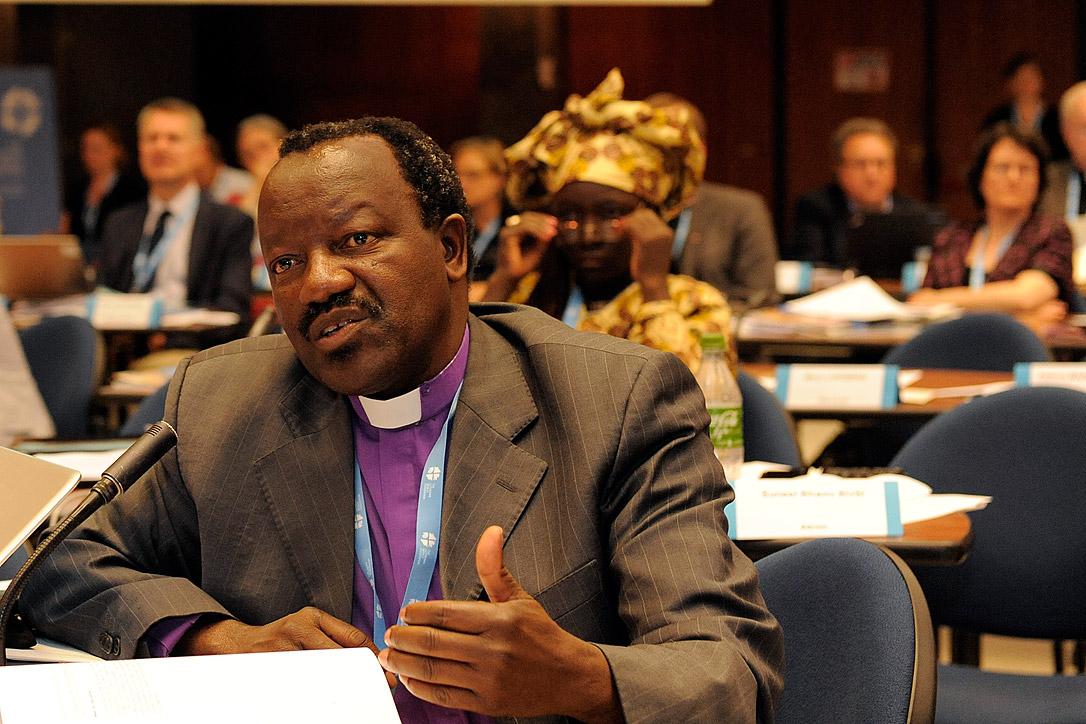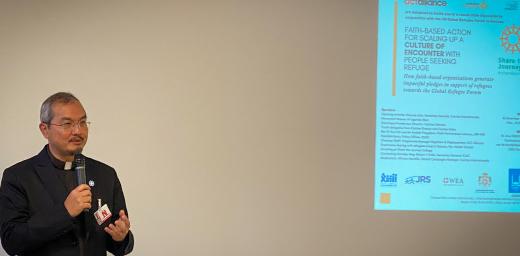Lutherans and Catholics share concern for nurturing families

Delivering LWF greetings to the Vaticanâs Synod of Bishops, South African Bishop emeritus Dr Ndanganeni Petrus Phaswana reminded churches of their calling to nurture communities where family relationships can be healed and strengthened. File photo: LWF/Helen Putsman
South African Bishop Phaswana brings LWF greetings to Vatican Synod of Bishops
(LWI) - The Lutheran World Federation (LWF) says the joy of 50 years of joint Catholic-Lutheran dialogue and witness should make the two Christian traditions sensitive to how their theological discussions address the needs of families.
Speaking at the 14th Ordinary General Assembly of the Synod of Bishops of the Catholic Church in Rome today, Bishop (Emeritus) Dr Ndanganeni Petrus Phaswana of the Evangelical Lutheran Church in Southern Africa said churches should support families in their daily challenges.
Phaswana is representing the LWF, invited by the Vatican to its synod, as a fraternal delegate. The 4-25 October gathering is discussing “The Vocation and Mission of the Family in the Church and the Contemporary World.”
Bringing LWF greetings to the synod, he spoke about “ecumenical families where members of the same family are not able to break the bread and share the wine, and hence be nurtured in shared communion in Christ.” Being in relationship and communion is the deepest meaning of family, thus the need for church support, he added.
“Both Catholics and Lutherans pray that families can live out their faith in communion with each other and with their neighbors, to witness together and to nurture their witness and togetherness through a shared spiritual life,” Phaswana said.
While Lutherans and Catholics mark 50 years of dialogue in 2017 with the shared conviction that there is more that unites than divides them, Phaswana said he hoped this intention can become a real sign of hope for families yearning to experience and witness communion in today’s fragmented world.
Churches are called to overcome divisions and grow into communities where relationships can be healed and strengthened, added the South African bishop, who is a member of the LWF Council.
Phaswana said the fruits of decades of dialogue, found in the publication From Conflict to Communion, in which Catholics and Lutherans jointly tell the history of the Reformation, shows the two traditions “have moved from a situation of conflict to an ever-growing commitment to communion.”





